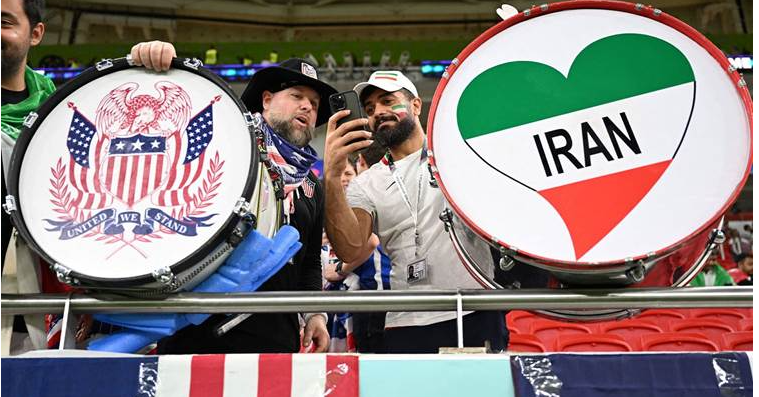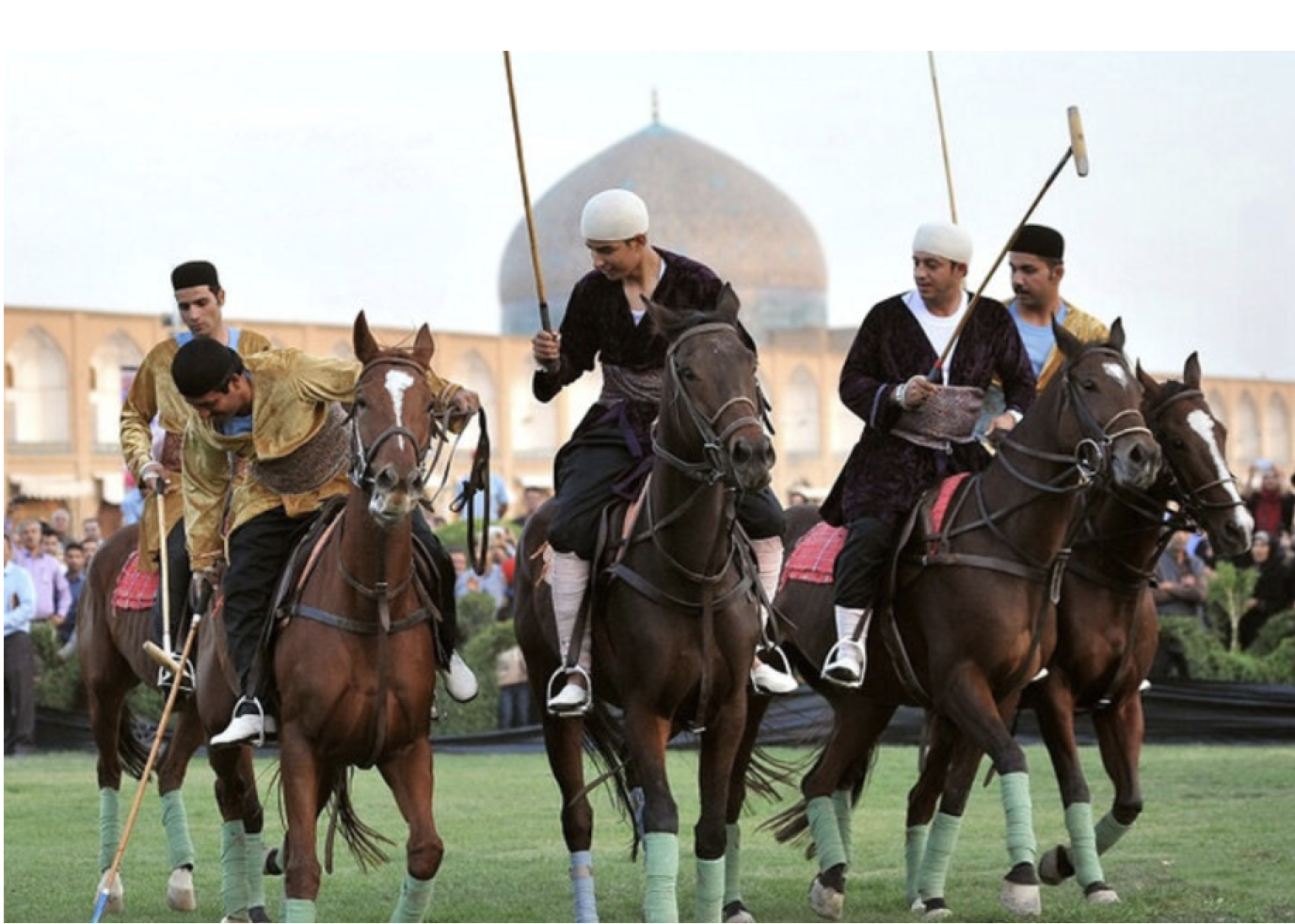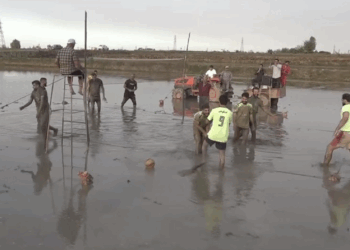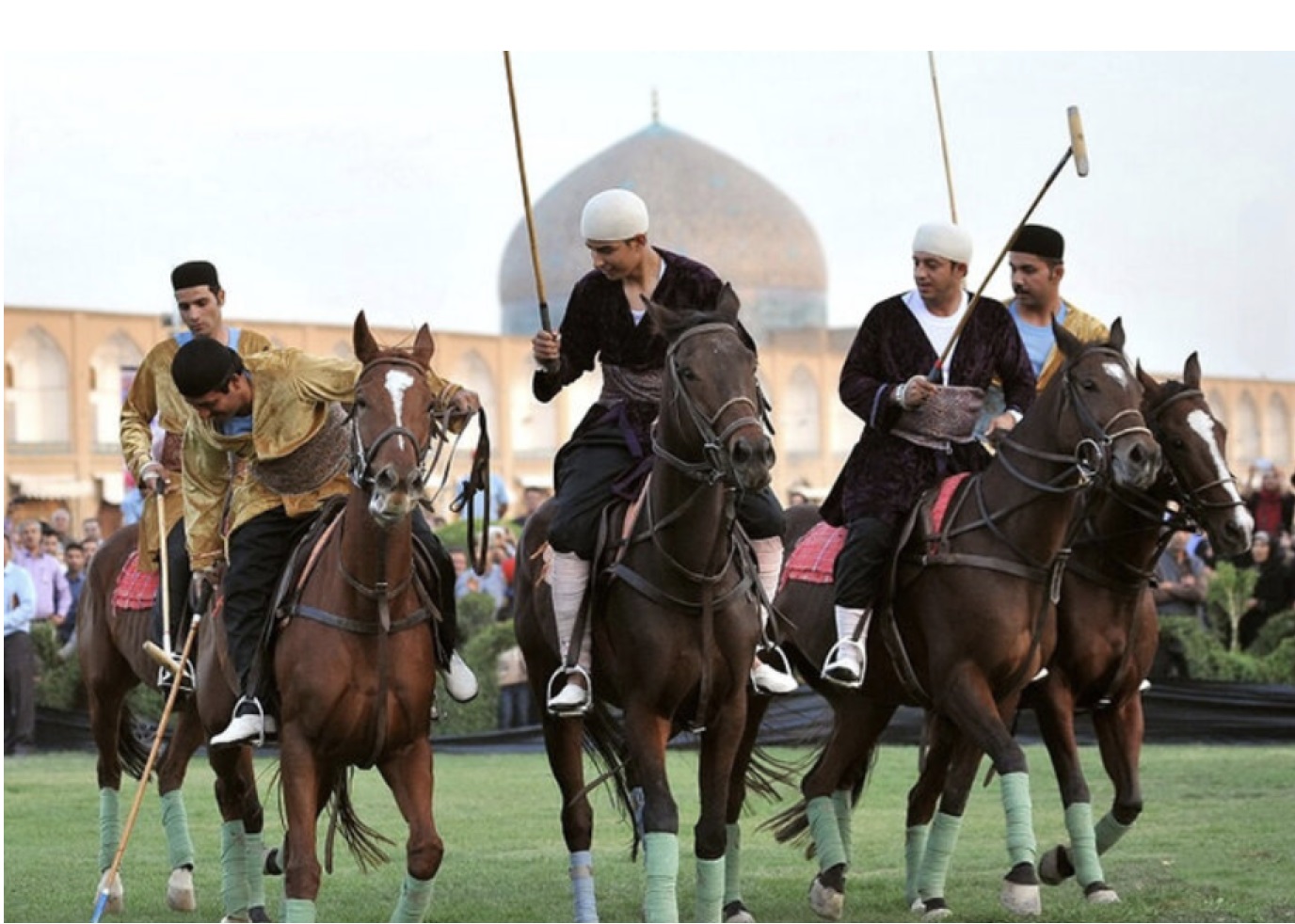December 16, 2022

by Warren L. Nelson
The Iran-US World Cup soccer match produced a tense and testy atmosphere but the tenseness and testiness weren’t between Iranians and Americans, rather the problem was between Iranians supporting the Islamic Republic and those opposing it.
The Iranian team was trapped uncomfortably in the middle. The regime saw many of the players aligning with protesters and reportedly threatened the players’ families if the players didn’t tow the line. On the other hand, many anti-regime fans saw the players as insufficiently respectful of their protesting countrymen and went so far as to boo the team and cheer for an American victory.
Many of the team members met with President Raisi just before flying to Qatar. That infuriated many anti-regime fans, who saw the players as willing toadies of the regime.
As Cup play began, the issue became the national anthem adopted by the Islamic Republic 32 years ago. At their first game in the Cup finals, the Iranian team stood passively during the playing of the anthem, with no player’s lips moving as the TV cameras panned down the team members lined up on the field. According to numerous news reports, this resulted in the authorities contacting the families of the players, ordering them to instruct the players on obedience or see their families face retribution.
At the second match, the players lips moved, though it appeared most were just mouthing the words.
At the third game, a few of the players appeared to be singing, but most players just moved their lips minimally. As the camera showed Sardar Azmoun, he stood impassively without so much as a twitch to his lips.
(The anthem, adopted in 1990, has singers declare their support for “the Islamic Republic of Iran” and not just Iran.)
But the fact that some players appeared to be singing the anthem and that several players had met with President Raisi before flying to Qatar made some fans furious with the team. Eleven players fewer than half the 26-man squad met with Raisi.
After the third match and Iran’s elimination from the World Cup, many fans in the stands cheered and celebrated not for the American win, but for what they viewed as a regime defeat. Some complained to newsmen that the team represented the regime and not the Iranian people.
In Iran, there were some celebrations in the streets for the loss. Most of these appeared to be small and not part of any broad manifestation of public sentiment. In Kurdish areas, however, the street celebrations tended to be quite large and some news accounts said security forces retreated in some Kurdish cities rather than risk real battles in the streets.
There was also a loud celebration of the defeat in Bandar Enzali on the Caspian Coast, not a Kurdish area, in which security agents opened fire on cars that were honking their horns, injuring several people and killing 27-year-old Mehran Samak, who was shot in the head.
According to videos on social media, security officers opened fire in Zahedan and Iranshahr in Sistan va Baluchestan province and in Izeh, Behbahan and Dezful in Khuzestan province as well as Kashan in Esfahan province.
In the stadium in Qatar, filled with more than 40,000 spectators, there were no obvious frictions between American and Iranian fans. In fact, both appeared to go out of their way to show affection for the other embracing and taking selfies with one another. With the media talking about great national frictions and animosities, the Iranian and American fans seemed to see it as their mission to prove the media wrong.
But there was real animosity in the stands between pro-regime Iranians and anti-regime Iranians. The government reportedly bought 5,330 tickets and handed them out to loyal supporters who appeared to be more interested in causing trouble for anti-regime Iranians than enjoying the game.
What’s more, the stadium security guards cracked down on anti-regime fans. The guards made arriving fans unfurl any flags they were carrying and confiscated those with the monarchist lion and sun or with just the national colors and no symbol of the Islamic regime in the center.
The guards also blocked fans wearing t-shirts with the “Woman, Life, Freedom” slogan of the current uprising emblazoned on them.
But they did not stop pro-regime fans from carrying photos of the late Pasdar General Qasem Soleymani into the stadium.
A few anti-regime fans were physically set upon by pro-regime supporters, though most confrontations appeared to be vocal rather than physical. Shouting matches were the norm. In at least one instance, however, a video showed an anti-regime fan being tackled by about a dozen Qatari guards who dragged him violently from the stadium. It wasn’t clear what prompted that.
Iranian officials denied asking Qatar to crack down on the anti-regime fans. Once Iran was eliminated from the Cup, fans were seen going to other games with anti-regime t-shirts and no hassle from Qatari guards.
The split among Iranians over whether the team represents Iran or the Islamic Republic is nothing resolvable by reason. The difficulty was even recognized by American late night comedian Jimmy Kimmel, who said, “The players for Iran have shown a lot of courage in this tournament. They even refused to sing their national anthem, which resulted in the Iranian government threatening to torture their families, so they weren’t exactly villains. It’s like finding out the shark in ‘Jaws’ is an endangered species you don’t know who to root for.”
The scale of the displeasure with the team was perhaps made most manifest when the team flew home and only a few dozen fans greeted their arrival at Imam Khomeini International Airport.
In one bar in Washington, DC, an Iranian-American man who gave his name as Mike said he had mixed feelings about the game but was rooting for Team USA. “I didn’t want to give another joy to the Iranian government,” he said. “My heart is with the Iranian people, not with the government.”
But Max Spear, an American watching the game in Los Angeles, said, “I don’t think supporting the Iranian players means you are supporting the regime. It’s two different things.”
Rachel, an Iranian-American, said she had lived in the US for 30 years and was rooting for the US team. Asked about the politics of the match, she said, “It’s a really complicated question. I don’t want to answer it.”
In Tehran, 21-year-old Elham said, “This is not my national team. It is not the Melli team. It is the mullahs’ team.”
In Qatar, Farshad Soheil said, “Our team has been hijacked.” He complained about the players’ failure to demonstrate concrete support for the protests.
In Washinton, Suzanne Maloney, director of foreign policy programs at the Brookings Institution, said, “There are clearly many Iranians who are embittered towards the national team for some of the signs of allegiance to the system, which are, of course, impossible to avoid for players on a team such as this.”
While the attention is all focused on the national soccer team, players on several other national sports teams have reportedly stood silent while the Iranian national anthem was played. IranWire reported that four members of the national beach soccer team were sacked for refusing to sing.
Iran International said Iran’s beach soccer, water polo, women’s basketball and sitting volleyball teams have all refused to sing the national anthem at recent events abroad.
Some Iranian journalists tried to make international incidents at news conferences held by the Iranian and American teams.
US coach Gregg Berhalter refused to take the bait. Responding to needling questions, he said, “I envision the game being hotly contested for the fact that both teams want to advance to the next round not because of politics or because of relations between our countries. We’re soccer players and we’re going to compete and they’re going to compete. And that’s it.”
Some Iranian reporters went out of their way to try to get the Americans to say something offensive, but failed. A PressTV reporter berated US captain Tyler Adams for pronouncing Iran as “Eye-ran.” Adams simply apologized.
The same reporter asked Adams how he could play for the US “when there’s so much discrimination happening against Black people in America.
Adams whose mother is white and father is Black said, “There’s discrimination everywhere you go. One thing that I’ve learned, especially from living abroad in the past years and having to fit in in different cultures and kind of assimilating to different cultures, is that in the US we’re continuing to make progress every day.” PressTV did not quote Adams’ response to its question, although it quoted the question
Berhalter was asked if the players were distracted by soaring inflation in the US although US inflation is about one-sixth that in Iran and by sanctions that stop Iranians from visiting the US although those sanctions were lifted by the Biden Administration almost two years ago.
One reporter accused Berhalter of “unprofessional” behavior for closing a training session to the media after 15 minutes as US soccer always does, and as most teams do, in line with FIFA rules.
The biggest kerfuffle erupted when the US soccer federation posted on its website in the United States a flag for Iran that was simply the national colors without the symbolic representation of the word “Allah” in the center. The Iranian regime went into overdrive, demanding that the US be expelled from the tournament for insulting Iran. FIFA, the governing body of international soccer, simply ignored the issue. The US team apologized, after noting it did not know what the staff in the US had done, and the regime’s flag was posted after 24 hours.
Iranian players and coach Carlos Queiroz were also subject to political questions, mostly aimed at trying to get the team members to criticize the regime and support the ongoing protests. Queiroz grew exasperated and said, “Is it fair to continue to ask political questions? It is the freedom of the press [to ask questions] and its is our right not to answer. Respect and understand our position….. It is strange that you don’t ask these questions to other coaches and players. Some of them do not talk about such matters in their countries…. Let the players play football like other teams. The players are not the enemies of the fans.”
Iranian state television has for decades broadcast foreign games with a few seconds of delay so directors can cut away when international TV feeds show protesting fans or even just poorly covered female fans. This time, Iran International reported, Qatar cooperated by providing a continuous long shot of the stadium that any foreign broadcaster could cut to if it did not like what was being shown on the standard feed.
























